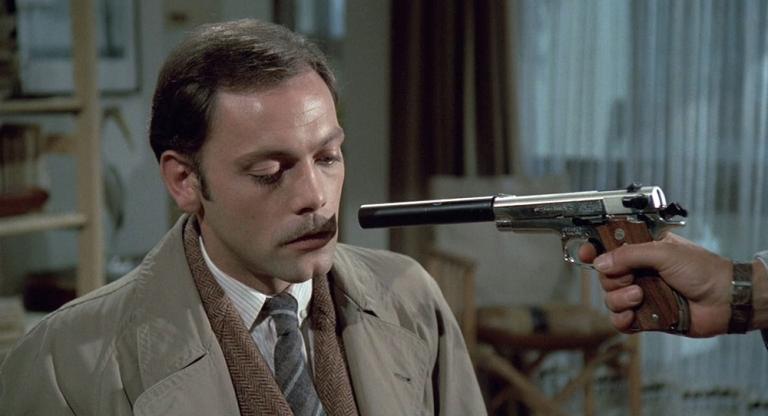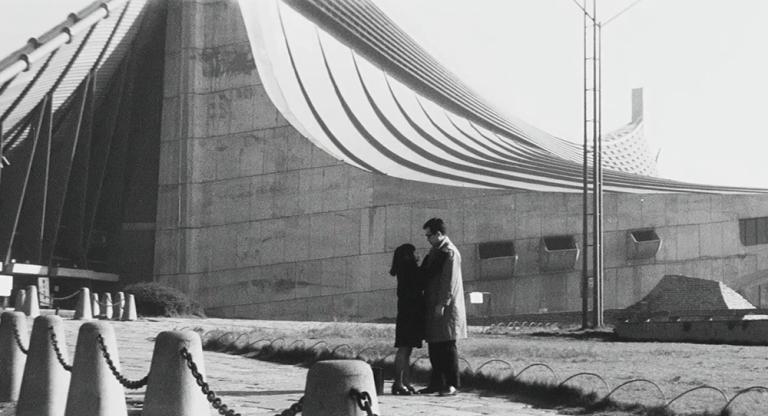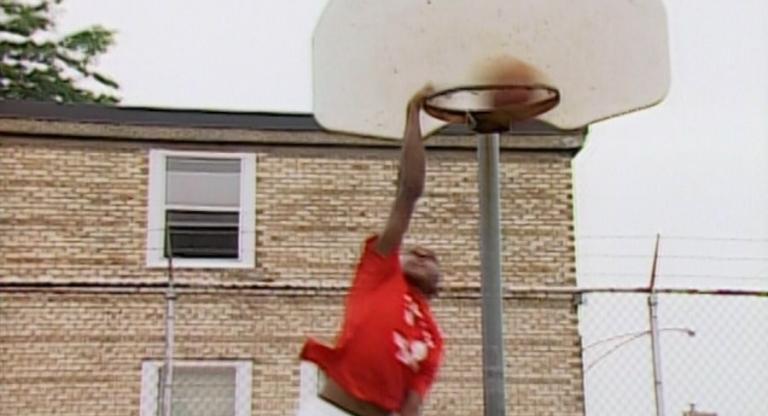A knot of familial relations both real and imagined forms the intriguing core of Zaho Zay (2020). Filmed in Madagascar by French/Malagasy documentarian Maéva Ranaïvojaona and Austrian filmmaker Georg Tiller, this hybrid of fact and fiction spins a pulpy yarn about a killer on the lam while simultaneously detailing the grueling conditions endured by actual inmates of Fianarantsoa Prison in south-central Madagascar. In the film’s two fictional roles, Ranaïvojaona cast her sister (Michelle Eva Ranaïvojaona) and uncle (Eugene Raphael Ranaïvojaona) as an estranged daughter and father.
The pair’s story is incompletely integrated with documentary footage of prison life, creating two alternate visual realities intersecting at odd, intermittent angles. Whether the result of artistic intention or restrictions of access or funds, the fissures create a self-reflexive text that lays bare the contours of its own storytelling while examining the power of autobiographical narratives. In the prison sequences, the camera acts as POV for The Daughter (as the character is credited) who works there as a guard but is never seen interacting with any of its inmates or staff. She appears elsewhere only infrequently, gazing stoically at the surrounding landscape or completing paperwork. Michelle Eva’s silent performance is expanded by a first-person narration written by Malagasy novelist Jean-Luc Raharimanana and read by actor Nabiha Akkari. Mirroring the film as a whole, the narration alternates between lamentations against the carceral system and The Daughter’s fantasies of the father who abandoned her as a child.
In her personal mythology, an absent father becomes Dice Killer, a cold-eyed outlaw roaming the countryside like Anton Chigurh in a trilby. The only sound he makes is the constant clacking of three dice, which according to The Daughter’s story, decide the fate of his victims. His crimes and travels are presented elliptically in miniature portraits of aftermath: embroidered curtains in the breeze, lifeless feet extending from between sugarcane stalks, a bloody sink, a knife on a table. These fragments suggest violence against family members and the innocent, but The Daughter’s aggrandizing daydreams promote him to revolutionary arbiter of justice to the mining magnates who sleep on “piles of dollars and yuan” while exploiting their own people, the type of people who wind up in crowded prisons where they’re forced to shout “zaho zay” during roll call: “I’m here.”
Zaho Zay screens tonight, March 11, through March 13 at Anthology Film Archives. Directors Georg Tiller & Maéva Ranaïvojaona will be in attendance for a Q&A following all 7:30 screenings.



